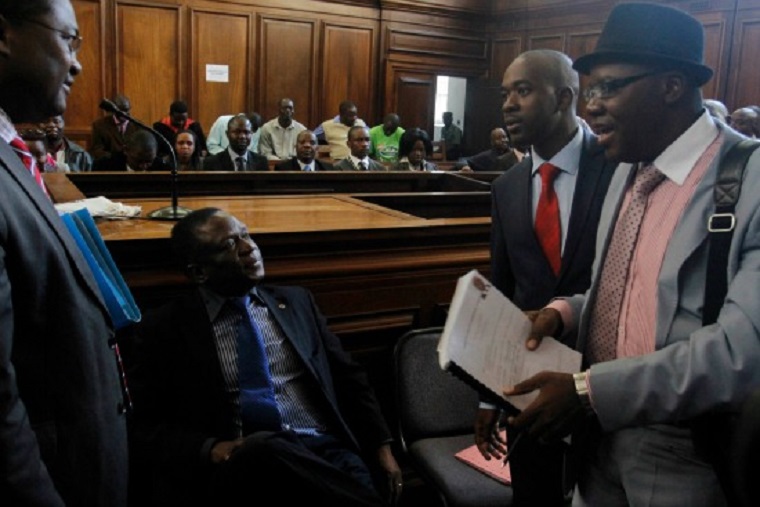 For the viewers of Zimbabwe’s stodgy state television channel, it was a shocking sight: a live and uncensored broadcast of the main opposition leaders as they unveiled their election manifesto.
For the viewers of Zimbabwe’s stodgy state television channel, it was a shocking sight: a live and uncensored broadcast of the main opposition leaders as they unveiled their election manifesto.
The 90-minute broadcast last week, unprecedented for the state channel, was an early sign of tentative new freedoms in the first election campaign since the toppling of Zimbabwe’s long-ruling dictator Robert Mugabe in a military coup last year.
The 30 July election will be a crucial test of those freedoms. The new President, Emmerson Mnangagwa, needs a credible vote in order to unlock the foreign investment and diplomatic support that he seeks. The opposition needs a free and fair election if it is to have any hope of winning.
Mnangagwa is trying to present an image of a reformed Zimbabwe, with Mugabe in retirement and the military back in its barracks. He has allowed European election observers to monitor the voting for the first time in 16 years, and other observers have also been permitted. But despite his promises, analysts have found evidence that his ruling party still wields unfair advantages in the campaign for the presidential and parliamentary election.
A free election could be unpredictable. The latest independent poll, a survey of 2 400 Zimbabweans by Afrobarometer and the Mass Public Opinion Institute in late April and early May, found that 42 per cent would vote for the ruling ZANU-PF party, while 31 per cent would vote for the main opposition alliance. That isn’t enough to guarantee victory for Mnangagwa in the first round of the election, since he needs 50 per cent to avoid a second-round runoff in which the opposition parties could team together against him.
The main opposition leader, 40-year-old Nelson Chamisa, is a young and energetic campaigner who has been drawing big crowds to his rallies. He led thousands of supporters onto the streets of Harare last week to demand electoral reforms to ensure that the election is free and fair.
The polls suggest that Chamisa’s support is higher than that of the opposition in the last election in 2013. His rallies, significantly, have been free from the police harassment and other intimidation tactics that have often hobbled the opposition in the past.
Chamisa’s popularity poses a serious threat to the 75-year-old president, who could be vulnerable to challenge because he lacks the stature of his predecessor, Mugabe, the symbol of the country’s fight for liberation from white-minority rule in the 1970s. Some members of Mugabe’s faction, having lost the power struggle within the ruling party last year, have given unofficial support to Chamisa’s opposition alliance.
But this is unlikely to outweigh the strong advantages that Mnangagwa still enjoys – including the potential support of Zimbabwe’s powerful military if the election becomes a tight race in its final days.
Continued next page
(495 VIEWS)